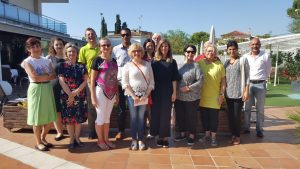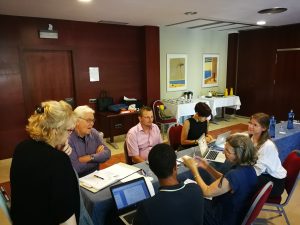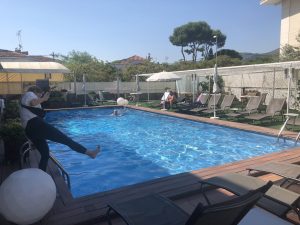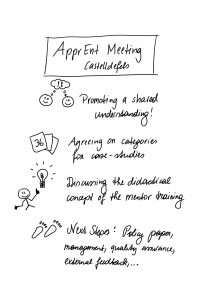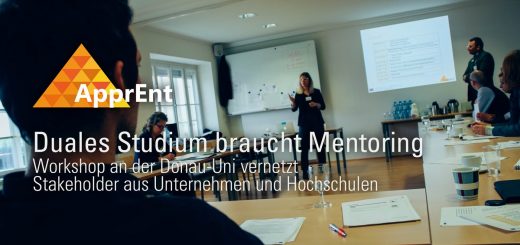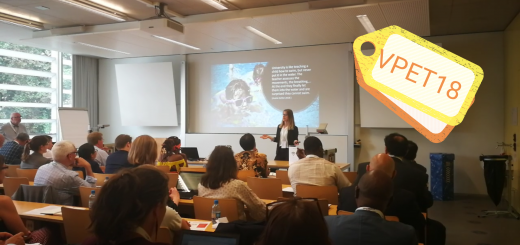ApprEnt-Meeting: Castelldefels Edition.
Once again it was ApprEnt-Meeting-Time – not virtually, but face-to-face, the real thing! The venue: Castelldefels, a little town next to Barcelona. The perfect place: Away from the busy city, all project partners in one hotel.
Promote a shared understanding in virtual teams
Atmosphere makes a difference! Starting from talking to the project partners informally at breakfast to gathering at the beach bistro for informal debriefing after the meeting: Promoting a shared understanding at its best. Communication is especially important for teams, who usually don’t see each other often. We used the workshop-sessions to discuss the different perspectives on higher apprenticeships.
The ApprEnt Case Studies are going online!
We decided that the 36 case studies will go online. There is much valuable situation from these different experiences in higher apprenticeships in different countries. But we also understood, that it needs an easy way for the reader to approach the case studies and to find out which of them are relevant. Therefore, we discussed category-headings to structure the case studies.
![]() Qualification level
Qualification level
![]() Programme promotors
Programme promotors
![]() Company size
Company size
![]() Access requirements for students
Access requirements for students
![]() Curriculum design
Curriculum design
![]() Type of Mentorship
Type of Mentorship
![]() Tools used in Mentorship
Tools used in Mentorship
![]() Industry Sector/ profession (Big thank you to Pooja Gianchandani for the contribution of this category!)
Industry Sector/ profession (Big thank you to Pooja Gianchandani for the contribution of this category!)
The Mentor Training: Defining skills and competences of a higher apprenticeship mentor
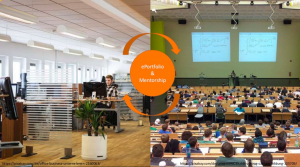
Connecting theory and practice through ePortfolio and mentoring – slide from my VPET18 presentation
The role of mentors is crucial in higher apprenticeships, they support the sense-making between practice and theory. It needs both, mentors in the company as well as mentors in higher education. Formative feedback plays and essential role in competence development and the ePortfolio-approach can help to document the learning process as well as make the learning outcome visible. Learn more about how the ePortfolio can support higher apprenticeships in my #VPET18 presentation from June 2018!
We discussed which skills and competences mentors in companies and higher education need to support the learning process. Based on our discussions, the LEVEL UP! WORKPLACE TUTOR GOES EUROPE-Guide (Thank you to Johanna Vainio for sharing!) and the ePortfolio learning cycle (based on ATS2020), I drafted 6 modules and learning outcomes – a basis for the didactical concept of mentor training, which we want to provide as an outcome of the ApprEnt-project. The didactical concept will be drafted by project partners and it will be discussed during the national ApprEnt-workshop sessions, which will take place in several European countries this autumn/winter. The goal is to develop a blueprint for a training design, which can be used by companies and universities to train their mentors.
The first draft of the training concept: 6 Modules
These are the 6 module, which I am proposing for the mentor-training. In Austria, we are planning to design it as an open online course – people can choose which modules are relevant for them.
Module 1: The apprentice’ learning process
Module 2: Planning the learning strategy in the company’s context
Module 3: Supporting the learning process
Module 4: Using digital tools to support the learning process
Module 5: Advocacy
Module 6: Self-Development
Next Steps
As next steps my ApprEnt colleagues are checking the proposed learning outcomes. Maybe we find out that some modules are matching to the needs of other countries, maybe a few others are not applicable. I assume in the end, there could be different training concepts for the different participating countries. If you want to learn more about the situation in Austria – I have recorded a podcast with Robert Frasch in Castelldefels – check it out 🙂
Together with Robert Frasch I will prepare the ApprEnt Workshop in Krems on the 12th of December. Keep you posted! Cheers!
